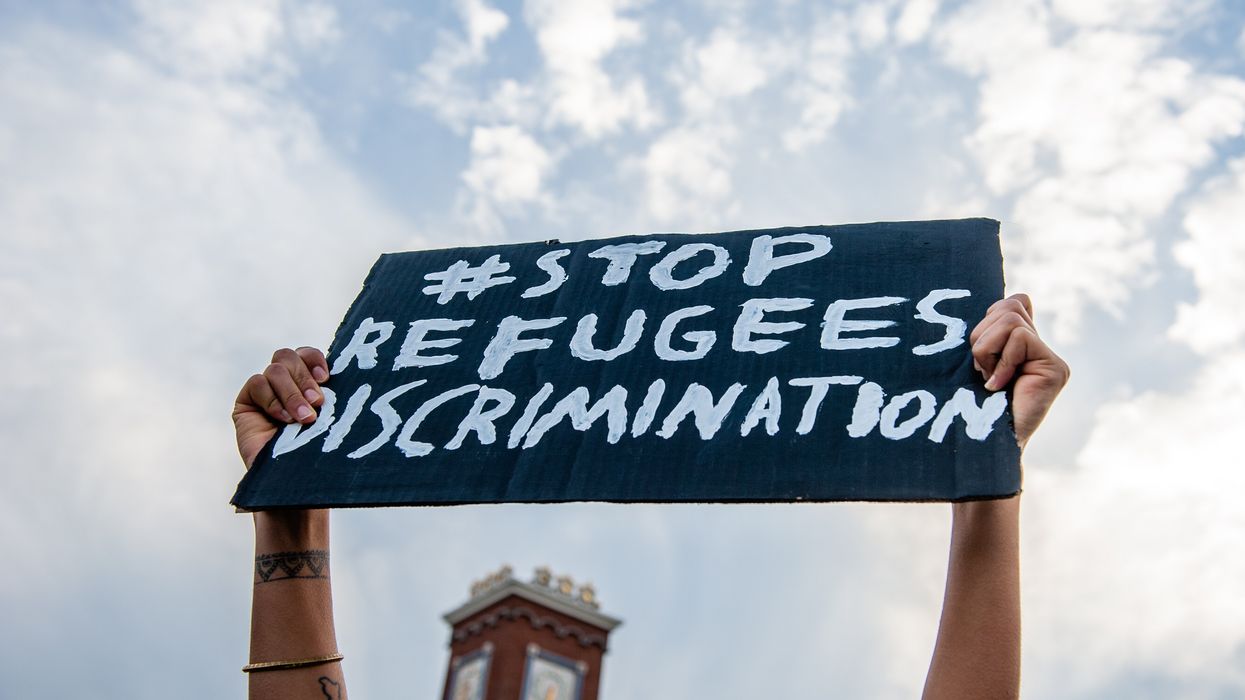Levasov is a founding member of United Stateless.
Georgia, where I live, has joined a number of other states in implementing digital ID technology, meaning you can now save and display your identification on your phone. Eventually, this form of ID could be used to board planes or enter secured facilities like federal courts or prisons.
Georgia’s digital ID tools precede full implementation of the federal Real ID Act, scheduled for May 2025. By then, everyone will need a Real ID-compliant driver’s license or another acceptable form of ID to fly within the United States.
While most Georgia residents are excited about the new level of convenience that this tech revolution promises to bring, downloading the app to my smartphone brings a flashback from an era when I was not able to possess even a physical means of identification.
I live in Suwanee, a city about 30 miles north of Atlanta, with my wife and daughter, working as an accountant. I am one of the few lucky ones able to push through the bureaucratic nightmare that comes with being stateless and getting U.S. citizenship. Others are not so fortunate.
In simple terms, a stateless person does not have any nationality. Some people are born stateless, while others become stateless. Not having a nationality in essence denies a person basic human rights.
My personal stateless story started back in early 1990s in Estonia, where a large, Russian-speaking minority group was denied equal access to citizenship. This immediately resulted in a large migration flow from the country. These stateless people traveled to other countries by any means in hopes of obtaining nationality elsewhere.
My story is not unique here in America. A recent study estimates roughly 218,000 residents are either stateless or are at risk of statelessness. While each person has a different story and circumstances, they are all denied their human right to nationality. This leads to lack of access to many basic rights, such as freedom of movement, right to employment and others.
Statelessness is not a widely known issue. Even top universities lack programs to educate future decision makers, lawyers, college professors and human rights activists on this topic. Statelessness affects people of all ethnicities and backgrounds. There are many historical examples. Governments continue denying minorities basic human rights to essentially push them out. To survive, stateless people migrate to other countries and often end up, decades later, in the same situation where they started – still without nationality.
Diagnosing statelessness is an integral component of curing it. Detecting and evaluating these statuses is often complicated and unique to each case, but it is a necessary step in offering protection and a path to citizenship. Just recently the Department for Homeland Security issued new guidance around statelessness, which will now be evaluated and considered a factor in immigration decisions. This is a huge step in the right direction for diagnosing the problem. However, the guidance does not cover all DHS branches and it does not cover those who are currently detained or have already served detention due to their status. These arbitrary detentions occur simply due to the lack of nationality and therefore the impossibility of deportation. This guidance will certainly protect a certain subset of stateless people from future detention but is by no means the permanent cure.
The potential cure is on its way in the form of federal legislation being discussed to extend permanent legal protections to stateless people. The bill, unfortunately, is far from becoming law due to the extreme polarization of our society, where something as trivial as mask-wearing creates a deep social and political divide. We need to look beyond our distinct political affiliations to support basic human rights. This legislation is an opportunity for us to unite rather than divide, to do the right thing.
Lawmakers need to acknowledge the existence of this vulnerable population within their jurisdictions and work towards aligning U.S. laws with existing international human rights standards. The alternative is that stateless people will very soon be denied access to airports and entry to federal facilities, including courts. Right now there are real, valid concerns over digital ID on this front.
In Georgia and across the country, I urge decisionmakers to consider all populations and their ability to obtain identification, regardless of whether they have any nationality.



















Trump & Hegseth gave Mark Kelly a huge 2028 gift